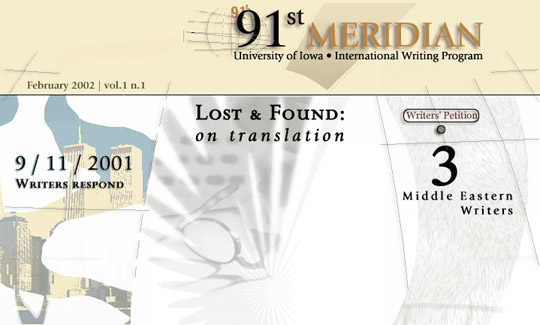THe Hour of Lead
The oleander was blossoming in the courtyard of the tekija, a dervish lodge set in a cliff, and in the last light of a September afternoon the white blossoms shone against the red rock. More than forty species of birds nest in the cliff, which also houses the source of the Buna River, an emerald tributary of the Nerevta flowing through Mostar, in eastern Bosnia, where Sufi dervishes arrived in the fifteenth century. They flourished here until the Communist takeover of Yugoslavia in 1945, when they went underground, resurfacing in 1991, when Yugoslavia began to break apart. Now there were seminarians talking in low tones at a table outside the kitchen, near a display of prayer ropes, shawls, kilims, and devotional books for sale. A waiter brought Turkish coffee to our literary delegation, and in the gloaming we watched the swallows sweep along the cliff.
I thought of Rumi, the thirteenth-century Sufi teacher regarded as the greatest mystical poet of Islam. Born in Afghanistan, he was still a young man when his family fled to Turkey, and there he met a wandering dervish who inspired his vocation. Rumi preached and wrote thousands of poems, often in a trance. His work is indeed ecstatic: in every encounter he sought divinity - for him friendship was spelled with a capital F - and his revelations about the nature of existence are as pointed as they are timeless, as this short poem reveals:
Inside the Great Mystery that is,
we don't really own anything.
What is this competition we feel then,
before we go, one at a time, through the same gate?
This was what I felt at our next destination - the ruins of East Mostar, the mainly Muslim side of the city, which had borne the brunt of destruction in the war of shifting loyalties dividing the Bosnian Muslim, Croatian Catholic, and Serbian Orthodox communities. The audience for our reading was small, and at the dinner afterward our host, a local Muslim journalist, apologized for failing to send out invitations. From the veranda of a restaurant overlooking the river we had a view of the wooden bridge erected to replace the famous Old Bridge, a sixteenth-century thing of wonder that once linked the two sides of the city: a symbol of tolerance destroyed in the war. But the stones had been raised from the water, and the bridge would be rebuilt.
Links between local Christians and Muslims would be harder to restore. The journalist, for example, blamed the West for the immorality sweeping the globe; homosexuality was his emblem of evil, and he wanted us to explain why the Pope had sanctioned same-sex marriages. Nor could we disabuse him of his theological errors - to say nothing of his intolerance. "Too much tolerance leads to chaos," he said venomously. And his bitter words came back to me in the aftermath of the attack on the World Trade Center and the Pentagon when the father of one of the purported hijackers used precisely the same language in an interview, castigating the West, even as he insisted that his son had no part in the crime.
It is no secret that pain can lock up our emotions. This is the subject of Emily Dickinson's great meditation on loss, composed in 1862, the year of greatest carnage in our Civil War:
After great pain, a formal feeling comes -
The Nerves sit ceremonious, like Tombs -
The stiff Heart questions was it He, that bore,
And Yesterday, or Centuries before?The Feet, mechanical, go round -
Of Ground, or Air, or Ought -
A Wooden way
Regardless grown,
A Quartz contentment, like a stone –This is the Hour of Lead -
Remembered, if outlived,
As Freezing persons, recollect the Snow -
First--Chill--then Stupor--then the letting go –
Dickinson's poems, almost half of which date from the Civil War, provide a map to the broken heart of a solitary woman and a nation. All was torn asunder by the Confederate secession, a public betrayal that perhaps echoed events in Dickinson's affective life.Yet she found "a formal feeling" for her grief, which transcends its private origin. Indeed it was in 1862, the pivotal year of the war, that she most vividly described the pain we now feel. That September, at the battle of Antietam, more Americans were killed on our soil than at any time until this September 11th. While neither side could claim victory, General Robert E. Lee was forced to abandon his Maryland campaign; his retreat prompted Abraham Lincoln to issue his Emancipation Proclamation, freeing the slaves.
1862 marked another emancipation: Dickinson completed, on average, a poem a day - hers was a "Soul at the White Heat," which traced, among other things, the hour of lead that has fallen again over this great land. Our hearts have been stiffened by the terrorist attack on New York and Washington, and we must hope our writers will discover ways to transfigure our grief. Otherwise we may end up as embittered as the journalist in Mostar. Nor is there any way of gauging how we will respond to such a wound. Indeed Dickinson understood that trauma will cause many people to freeze to death, literally or figuratively. What is certain is that in the months and years to come we will recollect the ash that fell like snow one beautiful September morning in New York. Who can say how or why some of us will waken from this cold?

-
9/11/2001: Writers Respond
- Torunn Borge, Too Little Seen
- Joy Goswami, Headless Torso
- Christopher Merrill, The Hour of Lead
- Chris Keulemans, Music in an Unsafe America
- Man-sik Lee, The Urgent Need
-
Lost and Found: On Translation
- Writers' Petition
-
Middle Eastern Writers


